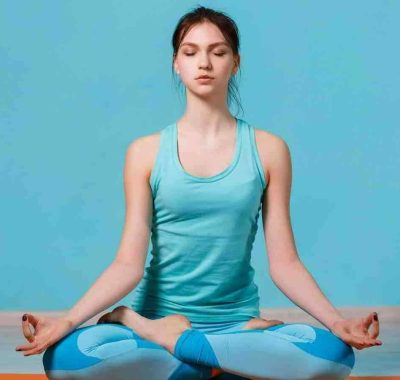Meditation
What is Meditation?
Meditation is a practice that involves training the mind to focus and redirect thoughts, often leading to a heightened state of awareness and inner peace. It has been practiced for centuries and is renowned for its numerous mental, emotional, and physical benefits. It is often done by directing attention to a specific object, such as the breath, a mantra, or visualization, or by simply observing the thoughts and sensations that arise without judgment.
The goal of meditation is to cultivate a heightened sense of awareness, presence, and inner peace.
If you’re new to meditation and wondering how to start, or if you’re curious about the different types of meditation available, read on for a comprehensive overview.
Types of Meditation
1. Mindfulness Meditation
Care reflection includes focusing on the current second without judgment.. It focuses on observing thoughts, emotions, and sensations as they arise, cultivating a sense of acceptance and non-reactivity.
2. Guided Meditation
Guided meditation involves following the instructions of a teacher or recorded audio to lead you through a specific meditation practice. It can be helpful for beginners or those seeking guidance and structure in their meditation practice.
3. Loving-Kindness Meditation (Metta)
Adoring thoughtfulness contemplation includes developing sensations of affection, empathy, and altruism towards oneself as well as other people. It typically involves repeating phrases or intentions that promote kindness and empathy.
4. Transcendental Meditation (TM)
Supernatural reflection is a method that includes quietly rehashing a mantra to accomplish a condition of profound unwinding and internal harmony. It is polished for 20 minutes two times every day while sitting easily with shut eyes.
5. Yoga Nidra
Yoga nidra, also known as “yogic sleep,” is a guided meditation practice that induces deep relaxation and promotes restful sleep. It involves systematically relaxing different parts of the body while maintaining a state of awareness.
6. Breath Awareness Meditation
Breath awareness meditation focuses on observing the breath as it naturally flows in and out of the body. It helps cultivate mindfulness, calm the mind, and increase self-awareness.
7. Body Scan Meditation
Body scan meditation involves systematically scanning the body from head to toe, bringing awareness to each body part and any sensations present. It promotes relaxation, body awareness, and stress relief.

Meditation is a mindfulness practice that involves training the mind to focus and redirect thoughts, cultivating a sense of inner calm and awareness. During meditation, individuals often sit quietly or engage in specific techniques, such as deep breathing or visualization, to promote relaxation and reduce stress. This ancient practice has been linked to numerous health benefits, including improved concentration, reduced anxiety, and enhanced emotional well-being. It can be a valuable tool for coping with the challenges of modern life and fostering a deeper connection with oneself. Regular meditation can lead to greater self-awareness, improved mental clarity, and an overall sense of balance and harmony.
Benefits of Meditation:
Stress Reduction: One of the primary benefits of meditation is its ability to reduce stress and promote relaxation. Regular meditation practice can help lower cortisol levels (the stress hormone) and activate the body’s relaxation response, leading to a greater sense of calm and overall well-being.
Improved Emotional Well-being: Meditation can enhance emotional well-being by helping individuals develop a greater understanding and acceptance of their emotions. It can foster emotional resilience, reduce anxiety and depression symptoms, and promote a more positive outlook on life.
Increased Focus and Concentration: Through the practice of meditation, individuals learn to train their attention and cultivate a focused and concentrated mind. This can improve productivity, enhance cognitive abilities, and strengthen the ability to stay present and engaged in daily activities.
Enhanced Self-awareness: Meditation allows individuals to develop a deeper understanding of themselves and their thought patterns. It cultivates self-awareness, helping to recognize and detach from negative or unhelpful thoughts, beliefs, and behaviors, leading to personal growth and positive change.
Improved Physical Health: Meditation has been linked to numerous physical health benefits. It can help lower blood pressure, reduce chronic pain, strengthen the immune system, and support overall cardiovascular health. The mind-body connection established through meditation positively impacts overall well-being.
Better Sleep Quality: Practicing meditation before bed can help relax the mind and prepare the body for restful sleep. It can alleviate insomnia symptoms, improve sleep quality, and promote a sense of relaxation and rejuvenation.
Enhanced Relationship Skills: Meditation can improve interpersonal relationships by fostering qualities such as compassion, empathy, and patience. It promotes mindful communication and deepens connections with others, leading to more harmonious and fulfilling relationships.
Spiritual Growth: For many, meditation is a means of deepening their spiritual connection and exploring the inner dimensions of consciousness. It can provide a sense of purpose, meaning, and connection to something greater than oneself.
Starting a meditation practice can be a transformative journey that enhances your overall well-being and quality of life. Whether you choose mindfulness meditation, loving-kindness meditation, or another technique, the key is to find a practice that resonates with you and commit to it consistently. With patience, persistence, and an open mind, you can experience the profound benefits of meditation in your life.

It’s important to note that the benefits of meditation are cumulative and often require regular practice over time. Starting with just a few minutes of daily meditation and gradually increasing the duration can be a beneficial approach. Exploring different meditation techniques and finding the one that resonates with you is key to establishing a sustainable and enriching practice.
